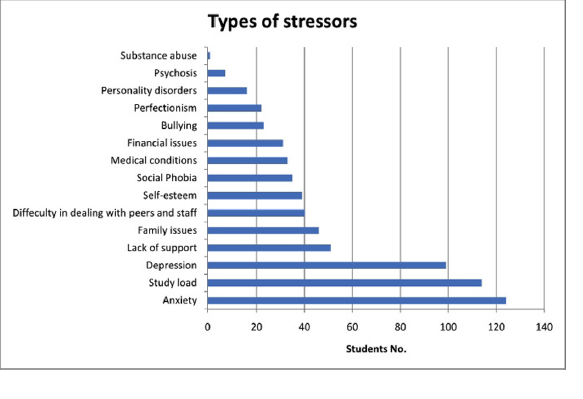Article contents
EPA-0369 – Stressors in University Student Life and their Effects on Academic Achievements
Published online by Cambridge University Press: 15 April 2020
Abstract
Being a student in higher education can be a factor in development of psychosocial distress among university students. Numerous studies have raised a lot of concerns related to the stressors consequences. Different types of stressors can lead to impairment in social and academic performance.
to study the prevalence of psychological, social, and academic stress among medical students.
To explore types & patterns of various stressors affecting medical students.
To determine the impact of these stressors on the students’ academic achievements.
To discuss interventional programs that could help in reducing the levels of stress experienced by students and how to cope with it.
We emailed about 1500 medical students in college of medicine, King Saud University with simple four exploratory questions. The survey evaluated the students’ opinions that addressed their psychological, social and academic difficulties and the need for help. Stage two will be a cross sectional survey which includes various validated scales. It will estimate the prevalence of psychological, social and, academic stressors. It will help us to choose the suitable intervention programs accordingly. Stage three will be designing intervention packages and measure their effects.
A total of 164 medical students completed the survey (61.5% were female). Percentage of respondents who reported they had experienced stress since college enrollment is 95%. The main factors that causing stress among medical students are displayed in Figure 1. The majority of respondents emphasized on the immense need for well-being programs.

- Type
- EPW07 - Epidemiology and Social Psychiatry 1
- Information
- Copyright
- Copyright © European Psychiatric Association 2014
- 1
- Cited by





Comments
No Comments have been published for this article.